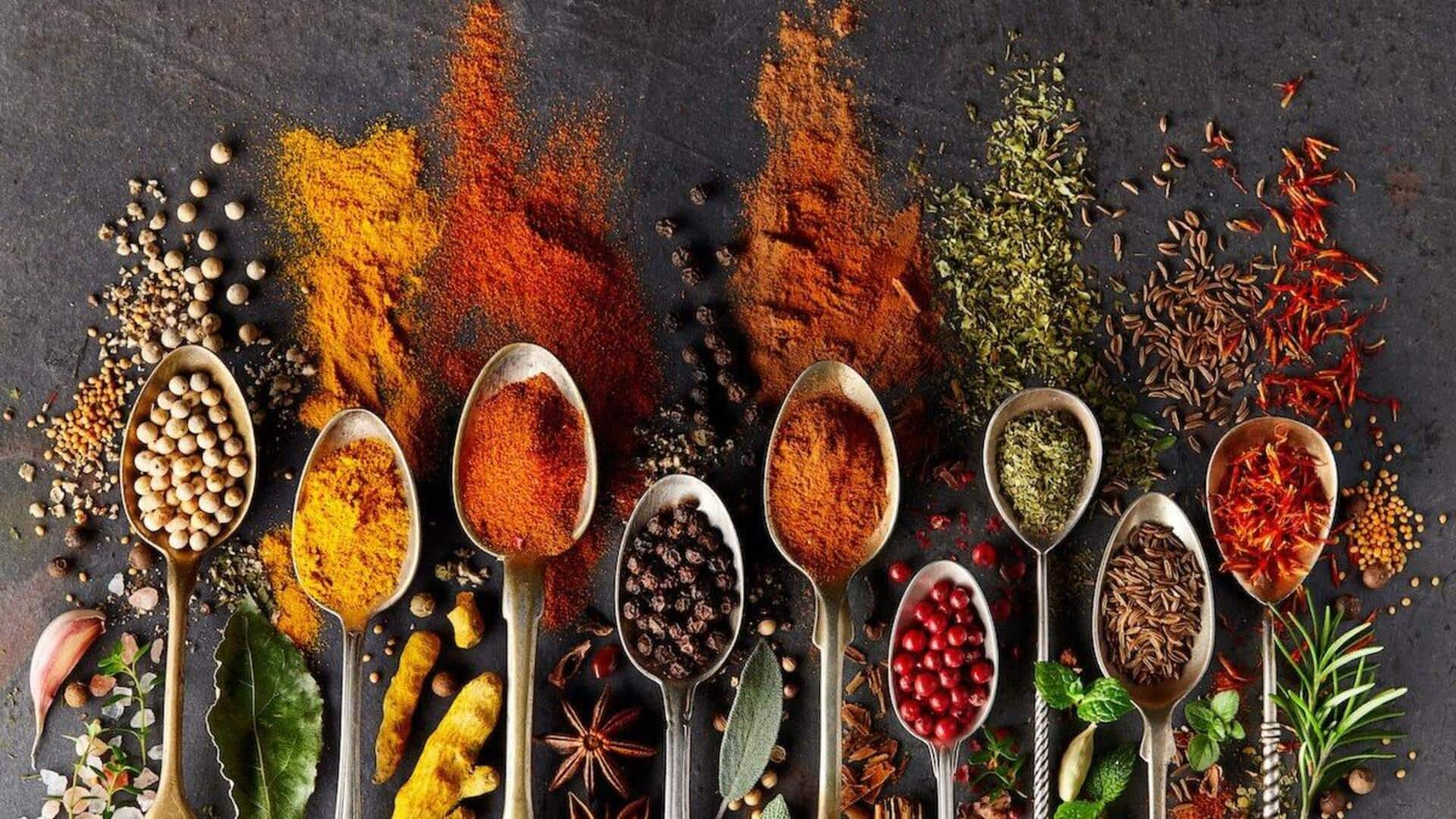
Essential Malagasy spices for vegan cuisine
What's the story
Discovering Madagascar's culinary heritage uncovers a world of vibrant flavors, particularly in their vegan dishes. These flavors are rooted in the spices that define Malagasy cuisine. In this article, we explore the traditional spices that form the backbone of vegan cooking in Madagascar, showcasing how each one plays a role in crafting delectable and fragrant meals.
Vanilla
Vanilla: The sweet aroma
Madagascar is famous for growing some of the world's best vanilla, and it's a secret ingredient in many sweet and savory vegan dishes. Its sweet, floral scent is perfect for adding depth to desserts, but it can also be found in certain stews and sauces, enhancing their flavors. This versatile spice is a must-have in every Malagasy kitchen.
Turmeric
Turmeric: The golden spice
Turmeric is that one indispensable spice in our kitchen. Besides its beautiful yellow color, it boasts a ton of health benefits. It's often used in rice dishes, curries, and soups, adding a warm, earthy flavor and a brilliant golden color. Beyond cooking, turmeric is a powerful anti-inflammatory ingredient. Many people swear by turmeric tea!
Ginger
Ginger: Zesty and warm
Ginger holds a place of honor in Malagasy vegan cuisine, infusing dishes with its distinctive warmth and zesty flavor. Whether grated or minced, it's a go-to addition for stir-fries, soups, and sauces, offering a spicy kick that perfectly balances other tastes. And, of course, ginger is a superstar when it comes to supporting digestion, making this spice a kitchen essential with wellness benefits.
Cloves
Cloves: Intensely aromatic
In Madagascar, cloves are cherished for their potent aroma and their ability to infuse both sweet and savory dishes with a layer of deep, warm flavor. They're especially loved in rice dishes and drinks, where a small number of cloves go a long way in elevating the dish with their robust flavor profile.
Lemongrass
Lemongrass: Citrusy freshness
Lemongrass is a staple in Malagasy cuisine, providing a distinctive citrusy freshness that can't be replicated by other herbs or spices. It's primarily used in teas, broths, and curry pastes, adding a subtle, lemony aroma. This invigorating scent is especially beneficial for vegan dishes, transforming even the most basic recipes with a vibrant burst of citrus.